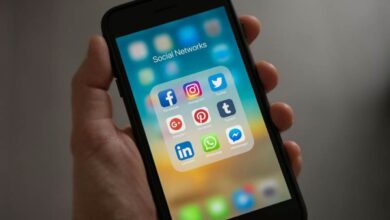Healthy Habits of Use With Your Phone for a Better Life
Do you ever feel like you cannot get away from your phone? Here we examine why does it happen and how to improve our digital wellness.

The Woman Post | Valentina Ibarra
Listen to this article
Phones have become a necessity, an extension of our arm that we can use to socialize, entertain, inform and engage. According to Melendres, about 73% of people have felt anxiety about losing their phones, on average we unlock our phones 150 times per day, and 87% of millennials say their phones are always with them. Furthermore, Common Sense Media reports that tweens -aged 8 to 12- spend almost 5 hours on their phones, while teens spend more than 7 hours.
After looking at these numbers we should ask ourselves: Is our relationship with phones healthy? Should we be changing our habits online? Even big enterprises who benefit from our usages -like Apple, Google, and Facebook- are offering incentives to reduce the hours online, including time information, limits, and options to snooze or stop app notifications. It shows that this is seen as a problem, and to solve it as consumers we need to understand how social media works in our brains and emotions.
According to Harvard, social interactions online can result in a release of dopamine, a chemical produced by our brain that is key in our motivational behavior. When we get a good message, likes in our photos, approving emojis, or other kinds of positive reactions, our brains are responding with a reward. And every time it happens, the association becomes stronger.
Also read: ONLINE RISKS: 9 THINGS YOU SHOULDN'T SHARE ON SOCIAL MEDIA
To keep us engaged, they use the same strategy that casinos learned years ago, they need to work with good and bad stimuli because you cannot always win, but you like the emotion before the results. You need to like the anticipation, especially when there is a competence for your time between different apps, so they create a system in which you need to be constantly checking to see if you get a reward. When it is delivered to us at random moments, we create a habit to check habitually expecting to see the thing that will release our dopamine.
For example, Instagram algorithms withdraw our notifications at the beginning, and later on, show a larger amount of likes. The initial negative feelings are replaced by the reward, so we feel socially validated while also keeping the habit of checking regularly for the positive response.
The feeling of happiness might not be bad per se, but think about your relationship with your phone: do you need to check constantly to feel calm? Is it interfering with your ability to concentrate at work, with your interactions in real life with family and friends, or your sleeping schedule? If so, you probably should change your phone habits.
To take control you can consider turning off your notifications, setting boundaries of how long can you use each app or the phone in general, putting yourself in a schedule where you cannot use your phone during certain hours -like right before sleeping or at dinners-, and even choose a day of full disconnection from your phone. It is a necessary item, but we have to consider the way it’s working to find a healthier way to interact with our phones.




